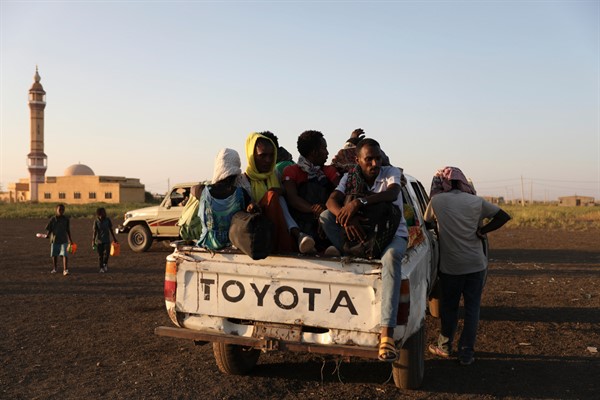When a Nobel Peace Prize winner goes to war little more than a year after receiving the world’s most prestigious honor, it may come as a shock. But when Ethiopian Prime Minister Abiy Ahmed, who won the prize in 2019, announced last week that he was launching a military offensive against one of his country’s ethnic regions, the news didn’t surprise close observers.
Despite the sudden outbreak of large-scale fighting between federal forces and the heavily armed Tigray regional government, tensions had been building steadily since Abiy became prime minister in 2018 and later dissolved Ethiopia’s ruling coalition, which included the Tigray People’s Liberation Front and three other ethnically defined regional parties. The TPLF refused to join the new national party that Abiy formed to replace the ruling coalition, so it was left out of power after having dominated the national government since 1991, when Mengistu Haile Mariam’s military dictatorship was toppled.
Abiy had outmaneuvered the TPLF, but the party continued to rule the Tigray region. The other reforms Abiy enacted immediately after taking office were transformative, and were greeted with euphoria by most Ethiopians and the international community. He welcomed back exiled opposition leaders, reached a peace agreement with neighboring Eritrea and vowed to build a strong, lasting democracy in Ethiopia.

